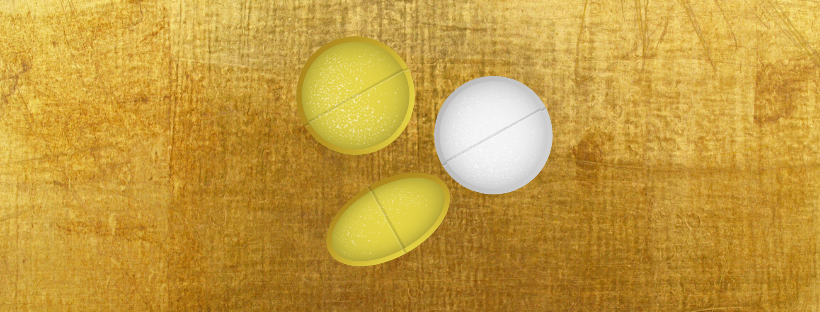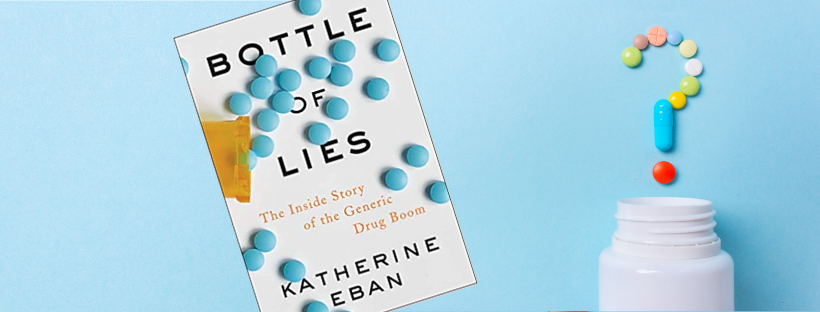by Gabriel Levitt, President, PharmacyChecker.com and Prescription Justice | Dec 12, 2019 | Drug Safety
Canada believes it is too small to facilitate U.S. wholesale importation of lower-cost drugs. This post will explore a much greater potential for importation from the European Union.
Opponents of
Americans buying less expensive drugs from overseas pharmacies (i.e. personal
importation) often rely on the common belief that the U.S. Food and Drug
Administration exemplifies the “gold standard” in drug safety. This “gold standard”
importation talking point from the
Pharmaceutical and Researchers of America (PhRMA) fuels Americans’ fear of ordering medication
internationally despite proof that importation can be very safe and provide
financial relief and better adherence to prescriptions:
“The United States is the gold standard when it comes to regulating the safety of our medicine supply. Importing medicines from countries that do not have our same strong standards could taint our medicine supply.”
The first sentence
is something you are supposed to take at face value. The second sentence is
deceptively broad: as in, yes, importing medicines from countries that do not
have our “same” standards could taint our medicine supply. Not
necessarily, but it could.
(more…)Tagged with: Katherine Eban
by Gabriel Levitt, President, PharmacyChecker.com and Prescription Justice | Sep 20, 2019 | Drug Safety

A lot of media coverage about counterfeit drug threats in the U.S. are spurred by the media relations efforts of organizations funded by pharmaceutical companies, such as the Alliance for Safe Online Pharmacies and Partnership for Safe Medicines. As I see it, their public education efforts conflate safe online sales of medicines imported by consumers in the U.S. with counterfeit drug sales and other forms of drug sales, ones that clearly harm patients. One such article that did not fall prey to the propaganda was published in Kaiser Health News’ California Healthline detailing street market sales of prescription drugs, including cases that involve counterfeit drugs and the dangers they pose. Journalists who are looking closely, checking the funding of organizations disseminating information about prescription drug importation, can help stop the propaganda of the pharmaceutical industry.
The Kaiser story, written by John M. Glionna, focuses on
Latino immigrant communities in which people can’t afford medication or, due to
their immigration status, are fearful of deportation if they go to federally-funded
clinics for medical treatments. Eight people were arrested and charged with
illegal street sales of prescription drugs, including injectables and
controlled drugs. Glionna describes the LA County authorities report:
(more…)Tagged with: Immigration, John M. Glionna, kaiser health news, Spanish
by Gabriel Levitt, President, PharmacyChecker.com and Prescription Justice | May 31, 2019 | Drug Safety
“Dispense as Written” are the words found on prescriptions in the U.S. when the prescriber wants the patient to take the brand drug, not the generic. Many who read Katherine Eban’s new book – Bottle of Lies: The Inside Story of the Generic Drug Boom – will conclude that they would like to see “DAW” on their prescriptions.
Bottle of Lies teaches its readers that generic drugs are not as good as the FDA claims. It shows that poor manufacturing practices, mostly in India and China, but also in the U.S., are the leading cause of substandard drugs being sold in U.S. pharmacies and throughout the world. More ominously, India and China intentionally ship even lower quality and, in some cases, worthless drugs to poor countries in Africa and Southeast Asia where regulations are weak or non-existent.
(more…)Tagged with: Bottle of Lies, generics, Katherine Eban
by Dr. Shivam Patel, PharmD, BSPS, RPh, Director of Pharmacy Verification and Information | May 17, 2019 | Drug Safety
Over 700,000 people died in the U.S. from a drug overdose between 1999 to 2017. That’s about 130 American deaths daily. At PharmacyChecker, we are dedicated to helping fight this epidemic by learning more about the crisis and spreading awareness. I recently obtained certification for The Opioid Crisis in America course offered by Harvard University.
According to a report published by the Substance Abuse and Mental Health Services Administration (SAMHSA), the main channels that people obtain opioid drugs illegally are from a friend or relative for free; buying from a friend or relative; or buying from a drug dealer or stranger.
As our main focus is often online pharmacy and importation, it’s notable that Harvard did not identify online pharmacy or importation as contributors to the opioid epidemic.
(more…)Tagged with: Harvard, opioids, SAMHSA
by Gabriel Levitt, President, PharmacyChecker.com and Prescription Justice | May 3, 2019 | Drug Safety
In their opposition to drug importation legislation, the myriad “non-profit” groups funded by drug companies often cynically invoke the evils of counterfeit drugs. We’ve seen this as recently as this week, when an importation bill triumphantly passed in Florida (Prescription Drug Importation Programs HB19). One such group, the Partnership for Safe Medicines, was called out by PolitiFact for essentially lying that the new state law would “allow” imports from China “without FDA inspection,” tacking on that “too many have already died from counterfeit drugs.”
The Florida drug importation bill builds in so many
regulatory checks that it may in fact make importation from Canada into Florida
safer than our “regular” drug supply chain, but that’s for another post. As it
happens, no one has ever been reported killed by a non-controlled prescription
drug imported from a pharmacy that required a valid prescription.
PolitiFact is right to call out PSM, but I’m sad to report
that, yes, there is a very real counterfeit drug problem in the United States.
But, unlike the fake counterfeit drug facts propagated by groups like PSM to
scare people away from buying lower-cost medicines online, it comes in the form
of illegal fentanyl ingredients used
to make counterfeit prescription narcotics.
(more…)Tagged with: Counterfeit Drugs, opioids, pill presses
by Gabriel Levitt, President, PharmacyChecker.com and Prescription Justice | Apr 19, 2019 | Drug Safety
According to the FDA, in 2017, 80% of the active pharmaceutical ingredients used to make our medicines are imported. I can’t remember how many times I’ve read (and written) that over the past decade or so. Almost every time I read that particular statistic in the news, it’s often a story about drug quality problems, in which foreign APIs are reported as a growing problem. Flashback to the FDA in 1998: as reported by the U.S. Government Accountability Office, the percent of active pharmaceutical ingredients used to make medicines for sale in the U.S. is about 80%.
In March 2019, Anna Edney, from Bloomberg News, wrote an
article called: “Tainted
Pills Force FDA to Tighten Drug-Safety Regulations.” The main focus of the
article is that there are drug quality problems caused by APIs that are not
meeting the required standards.
(more…)Tagged with: active pharmaceutical ingredients, drug quality, FDA








